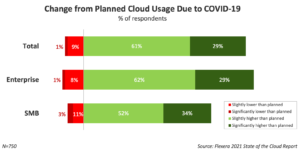Topics: Finance and Accounting Transformation
6 Topics Dominating Boardroom Discussions in 2021
Posted on July 02, 2021
Written By
Pom Chakravarti

2020 left a huge impact on businesses across the globe because of the COVID-19 pandemic. Today, businesses, especially those in the US, UK & Europe, are recovering and reopening their doors to customers. CFOs, CXOs, and other finance leaders are gearing up to implement their learnings from 2020 into their respective businesses. They will also be considering the lessons of the past year while deciding the agendas for 2021-22.
Let’s dive into some of the agendas that are at the top of boardroom discussions in 2021.
1) Risk Management & Business Resilience: The COVID-19 pandemic is a global crisis and it has heavily impacted business across the globe. In fact, we have witnessed several incidences of risk oversight when it comes to the digital world, like cyberattacks. In spite of the growing risks, many businesses have shown resilience when it comes to surviving the unknown.

2021 is slated to be the year when business leaders focus on finding better ways to survive a crisis and decide on areas of improvement. Better collaboration, quicker decision-making, financial stability, and enhanced client relationships will form the base for business resilience. However, it’s a wait and watch game when it comes to preservation of the learnings from the past year.
2) Reimagining Workplace Design: There’s been a massive shift in the way businesses look at workplaces over the past two years. Although many organisations have made a successful shift to the work-from-home (WFH) model, there are concerns over whether this model will work post the pandemic.
Broadly, there are 3 models that businesses can follow: work office desk, near shore desk, or virtual desk/work-from-anywhere (WFA). According to a recent HFS survey, 70% of business leaders believe that the workforce will return to the office once vaccinations are commonplace and office environments are once again deemed safe. Although WFH is currently the norm, it is unlikely to be a long-term strategy for businesses.
3) Diversity, Equity, and Inclusion (DEI): A survey published by Deloitte and the Society for Corporate Governance in September 2020 noted that “most companies and/or their boards have taken, or intend to take, actions in response to recent events surrounding racial inequality and inequity.” Unsurprisingly, in the face of major social movements we have seen over the last few years, many stakeholders, including investors, workers, and customers, are demanding that employees pay attention to DEI.

Many employees are concerned whether the company they work for values their needs and concerns. Furthermore, 55% of respondents of the survey said that they have already established metrics to support diversity and inclusion strategy, performance, and execution; 45% indicated that they intend to take similar actions.
4) Corporate Culture: A perennial topic on the boardroom agenda, business leaders are sure to strengthen their focus on company culture. Every business has its own set of defined values. However, it is businesses that not only have good values on paper but are also able to actually implement them that were able to respond effectively to the pandemic.
Trust is the backbone of any culture and it is vital to the company’s resilience and ability to pivot in the face of changing market realities. Open work policies and transparent communication have been pivotal to the success of businesses during the last year. Clear communication, coupled with a strong innovation culture, is the need of the moment as it will in turn facilitate effective and creative solutions.
5) Digital Adoption: In today’s world where remote work is the norm for many, digital adoption is critical. Exposure to this dynamic work environment has led to businesses deploying digital technology, digitising new products and services, automating internal processes, improving information for decision-making, and enhancing workplace flexibility.

It’s important to note that intelligent automation and technologies like robotic process automation (RPA) require massive investments and provide fruitful returns only over a long period of time. A better alternative to such automation would be low code automation that’s currently winning over several business leaders. The key to digital adoption however is to choose cloud-based systems and software that can integrate and communicate with each other. The end result of such systems is higher efficiency and productivity.
6) Global Expansion: According to a 2021 survey by Industry Dive and Globalization Partners, an overwhelming majority of CFOs are optimistic about how their companies will perform in 2021, and they see global expansion as the path to company success. Earlier, businesses used to open shared service centres for different functions, such as marketing, finance, etc.
Things have evolved during the last decade, with many businesses choosing global business services (GBS) models that follow a one hub centre policy with everything under one roof. GBS and Shared Services models can provide businesses with more continuity & resilience, minimise risk, add value to both the business and its services, and make a huge difference to the end clients.
As we transition from enforced isolation to gradual resumption of normal life across the globe, it is crucial that businesses find ways to thrive amid such chaotic and disruptive times. Businesses should focus on building resilient work cultures that are capable of addressing evolving workplace dynamics.
It also becomes imperative for businesses to address and adapt to customer needs, wants and preferences in an intelligent and innovative way in order to truly make a mark in what is expected to be a challenging yet exciting financial year.
Pom Chakravarti
Pom Chakravarti is a management graduate with specialisation in marketing and finance. Over the course of the last 15 years at QX, he has grown from a service delivery operational role to a strategic position, where he works closely with the Group CEO and the QX Board to fine tune and achieve business objectives. As the CSO, Pom provides personalised consulting and advisory support to clients, ensuring that the business is able to effectively support the growth goals of its clientele.
Originally published Jul 02, 2021 12:07:35, updated Jul 02 2024
Topics: Finance and Accounting Transformation









